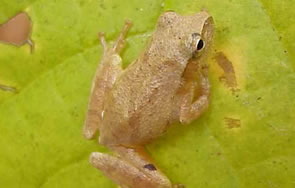
Pseudacris crucifer
Photo by JD Willson
Description: The spring peeper’s most distinctive trait is the dark cross or X-shaped blotch that usually is found on its back. In fact, the species name “crucifer” means “cross bearing.” The spring peeper can be tan, gray, yellowish, orange or pinkish. It is a small frog with small toe pads.
Habitats and Habits: These frogs are found throughout most of North Carolina, with the exception of the Outer Banks. Spring peepers inhabit woodlands and swamps, preferring areas of thick, brushy undergrowth near ephemeral or semipermanent ponds. The eggs are laid singly, submerged near vegetation at the bottom of the pond. The tadpole period is at least six weeks. After metamorphosis, young spring peepers disperse into the surrounding woodlands.
Call: Rarely seen during the summer months, spring peepers loudly announce their presence during warm, rainy nights and overcast days, most frequently from November to April. However, if conditions are right, they may call at any time of the year. Their high-pitched, whistle-like “peep” can be heard from about a mile away. Large choruses of spring peepers may sound like sleigh bells.
Frog Fact: The spring peeper is one of many North Carolina frogs that spends much of its time living in upland habitats. Human activities that alter habitat surrounding wetlands may be detrimental to populations of this species.
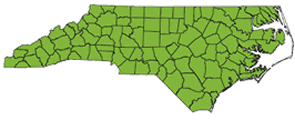
The shaded region represents the range of the spring peeper in North Carolina.
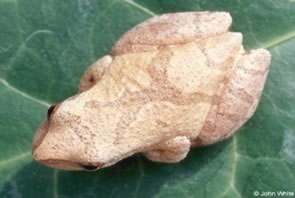
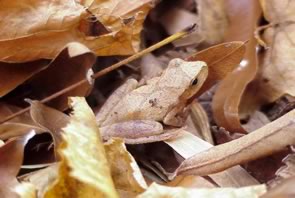
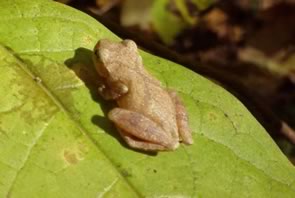
Notice the X-shaped marking on the back.
Photo by John White
Photo JD Willson
Photo by JD Willson
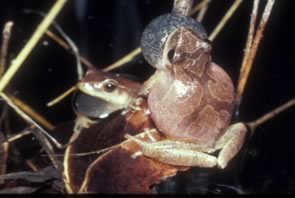
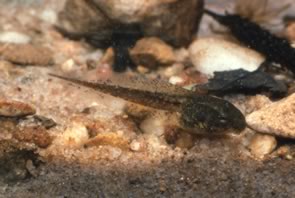
Photo by Trip Lamb
A spring peeper tadpole.
Photo by RW Van Devender
This website created by: Grant Connette and Evan Eskew.
For comments or questions contact M. Dorcas: midorcas@davidson.edu.
M. Dorcas homepage: http://bio.davidson.edu/dorcas
Davidson College, Davidson, North Carolina 28035-1719.
Text and maps from: Dorcas, M. E., S. J. Price, J. C Beane, and S. S. Cross. 2007. The Frogs and Toads of North Carolina. North Carolina Wildlife Resources Commission, Raleigh, NC. – Copyright by Michael E. Dorcas
Partial Funding for this website provided by a Associate Colleges of the South, National Science Foundation, and Duke Energy.
